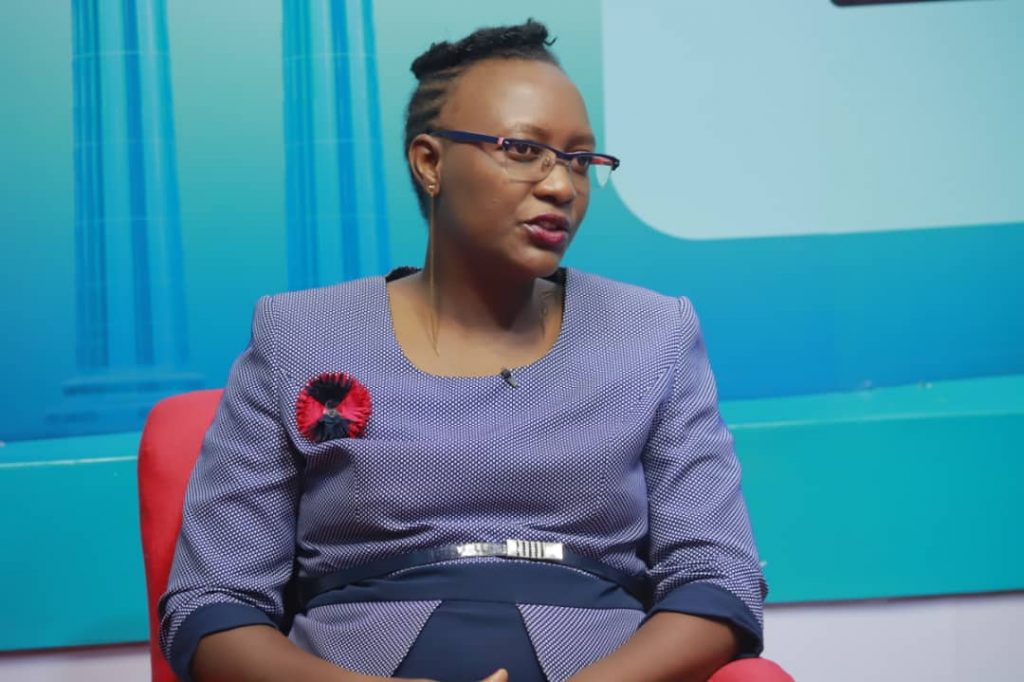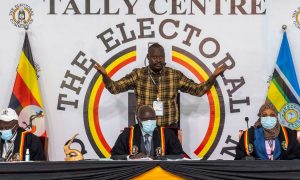
The 2021 Elections were conducted in the midst of a COVID-19 pandemic. This pandemic led to drastic changes in the way the media was priory used because it saw the unprecedented massive use of social media.
At the launch of the revised roadmap on June 16, 2020, the Electoral Commission announced that campaigns would be conducted through media (Radio, TV and Social Media platforms) because COVID-19 could not allow for the conduct of mass rallies. The announcement to use media for campaigns affected how people, both candidates and voters were to participate in the election. The 2021 Elections have had an overwhelming number of both female and youth voters, groups that normally have high rates of voter apathy. 52% of the registered voters are female with 67% of them being youth. And majority of youth love online platforms such as twitter, facebook and WhatsApp, no wonder the decision to shut-down the internet during the 2021 Elections received mixed reactions from so many young people.
According to Charity Ahimbisibwe the National Coordinator at the Citizens Coalition for Electoral Democracy in Uganda (CCEDU) said that she spoke to people that make a living out of the internet and shutting it down meant they had no work for all the days the internet was shut down. However, Internet shutdown was not the only setback in using internet as the major medium for sharing information ahead of the Elections and on Election Day.
The statistics for the usage of media to deliver messages to the voters were dire; according to Afrobarometer Policy Paper 2019; computer usage in Uganda stands at 4%, while 74% of Ugandans never use the Internet and only 26% use the internet. Furthermore, of the 26% who go to the internet only 7% use it daily, another 7% use it a few times a week, 45 use it a few times a month and 5% use the Internet less than a month. Uganda has an Internet penetration of less than 32%. In terms of Radio stations, Uganda has 290 radio stations according to the UCC January 2020 report, 42 TV stations and 86% of them own mobile phones(smart phones and Kabiriti).
Ahimbisibwe noted that conducting a large scale campaign to mobilize and educate voters as was the case in the 2021 Elections was threatened by COVID-19 and limited funds. CCEDU in partnership with NICE-U supported by UN Women quickly crafted a multi-pronged multi media campaign that mainly emphasized the modes that the Electoral Commission had put out for message sharing with the masses. The idea was to reach as many of the 18,103,603 million voters with our voter education message which was dubbed Omulembe Gwa Digito, Beera Mu Class. The call to action was for the voters to follow their candidate campaigns online through, radio, Tv, Newspapers, facebook, Twitter, Instagram. That was the modern way of conducting business.CCEDU and NICE-U utilized peer-to-peer influencers online to deliver the message engage, participate and vote for their preferred Candidates on January 14, 2021. The influencers used their facebook and twitter accounts to mobilize young voters to go to the polls.
Beyond the peer-to peer influencers; CCEDU held a number of talk-shows on TV and radio to explain to voters how to tick ballot papers, the layout of the polling station and how their right to vote should be exercised at all costs.
CCEDU educated the masses about the Electoral Commission guidelines ahead of the elections and prominent among the guidelines, voters were not allowed to stay near the polling stations after casting their votes because of COVID-19. CCEDU also encouraged voters to carry their masks and a sanitizer in their pockets, plus their own pens as they went to vote. Guided by the principles of transparency; accountability of electoral systems; respect for human and civic rights; tolerance; gender equity and equal opportunity; non-partisan citizen participation, CCEDU put out voter education messages on radio, through the phones, gave out fliers in communities and educated the voter on how to participate in all the elections.
Secondly , the number of invalid votes although high reduced by 25.15% in 2021 compared to 2016. In 2016 the number of invalid votes were 477,319 and in 2021 the number of invalid votes registered were 381,386 votes. This reduction in number was most certainly attributed to the various voter education efforts ahead of the 2021 Electoral process. CCEDU/NICE-U campaign specifically targeted youth and women, the majority of voters that showed up for the 2021 polls were women and youth.




























